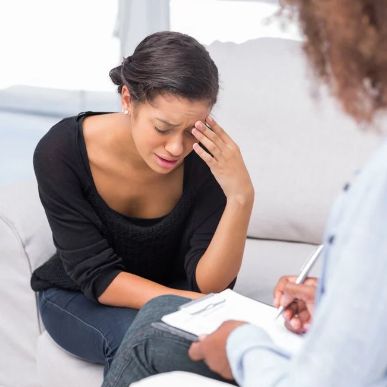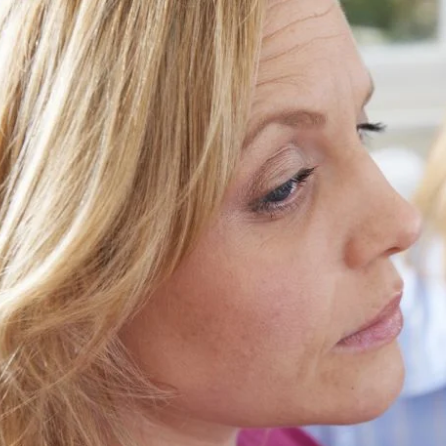Psychiatry Consultation in Hua Hin
Search and Compare the Best Clinics and Doctors at the Lowest Prices for Psychiatry Consultation in Hua Hin













































































































































No Time?
Tell us what you're looking for and we'll reach out to the top clinics all at once
What does a Psychiatry Consultation Procedure Involve?
During your first psychiatry consultation, your psychiatrist will do an initial assessment. The first consultation is usually the longest as it should give your psychiatrist time to listen to you and hear your whole story.
Be prepared to answer lots of questions. Your psychiatrist will ask you about the problem that brought you to see them and general questions about your life and thoughts. It might be hard to answer open-ended questions, but remember that there is no wrong way to answer the questions and your psychiatrist will guide you through the interview. To get the most out of your psychiatry consultation, you should come prepared so you can be specific. If you feel comfortable, you can also share the goals you would like to achieve from the treatment. All the information you give can help your psychiatrist develop an individualized treatment plan.
You will also be asked about your medical and psychiatric history, both personal and family. Therefore, make sure that you prepare the following:
-
A list of medications you are taking
-
A list of any and all psychiatric medications you may have tried in the past and how long you took them for
-
Your medical concerns and any diagnoses
-
Family history about a psychiatric problem, if there are any.
Your psychiatrist may also want to speak with members of your family and speak with other health professionals.
Next, your psychiatrist may take your blood pressure and do a basic physical checkup, including taking your temperature and weight. In some cases, other testing or scans may be ordered.
Based on the information your psychiatrist gathered and the test results, they will make a full diagnosis. Then, the next step is to create a treatment plan. A treatment plan consists of a combination of therapies that suit your needs, personal preferences, age, and family situation. Your psychiatrist may prescribe medication or suggest other treatments, such as cognitive-behavioral therapy (CBT) or counseling.
Your psychiatrist may continue to manage your treatment or you may be referred to see other health professionals, such as a psychologist.
Your next psychiatry consultation will typically be shorter than the first. In general, you will discuss how the medicines or treatments are working, and give a concise overview of how you are doing. Your psychiatrist or other healthcare professional will decide whether your medications or treatment need to be adjusted or not.
How Long Should I Stay in Hua Hin for a Psychiatry Consultation Procedure?
You can leave the hospital or clinic as soon as your psychiatry consultation is finished. While your length of stay will depend on your circumstances, you usually do not have to stay in Hua Hin any longer than you want to.
What's the Recovery Time for Psychiatry Consultation Procedures in Hua Hin?
No recovery time is needed after the psychiatry consultation itself. You should be allowed to go back to your normal activities, including work and exercise, immediately after your treatment. Note that it is normal to feel emotionally drained or overwhelmed after a psychiatry consultation. Therefore, it is okay to rest after your consultation and return to your daily activities when you feel ready.
Your recovery will start after treatment, which will depend on your specific condition and the type of treatment you undergo.
What sort of Aftercare is Required for Psychiatry Consultation Procedures in Hua Hin?
If your psychiatrist prescribes medications, make sure to take it as directed. You will probably need to see your psychiatrist regularly if your psychiatrist is providing you with psychological treatments. In addition, you may be suggested to go back to your GP for a regular checkup. They may also refer you to see a psychologist, social worker, or other therapists.
In most cases, you may need to attend more than one psychiatrist consultation. However, if your GP refers you to attend a psychiatry consultation only for a management plan or second opinion, you may not need to go back for another consultation.
What's the Success Rate of Psychiatry Consultation Procedures in Hua Hin?
Psychiatry consultation is the first step of treatment for mental health conditions. Consultations have high success rates in diagnosing your condition and finding out the reason for your problems. There is typically no risks involved in psychiatric consultations. Discussing your past, problems, family history, and treatment goals can bring up sensitive issues that may cause you to feel a lot of emotions.
Are there Alternatives to Psychiatry Consultation Procedures in Hua Hin?
You may be able to see other mental health professionals, such as a clinical psychologist, mental health counselor, clinical social worker, or other therapists. They usually provide therapy. However, they cannot prescribe medication.
This information has been accurately sourced and verified by a medical professional for its accuracy, however, we strongly recommend you to consult with your doctor before pursuing medical procedures overseas.










